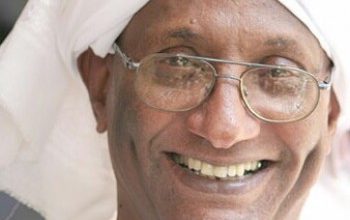The UAE’s Attempts to Strangle Sudan Economically

By: Amjad Farid Al-Tayeb
The document below reveals the establishment of the United Arab Emirates through a company owned by a member of the ruling family (HBK DOP Company owned by Hamad Bin Khalifa Al Nahyan, who tried some time ago to buy an Israeli football club, but the league’s management obstructed the deal due to doubts about the sources of his wealth and investments). By concluding an agreement to be implemented within 90 days with the Republic of South Sudan on a loan of $12 billion, to be repaid within a period of 20 years from receipt of payments, which was divided into three stages ($5.2 billion, $3 billion, and $3.7 billion). The terms of the agreement stipulated that the loan would be repaid by shipments of South Sudanese oil, which for the purposes of this agreement was priced ten dollars per barrel less than its market price. In the event of a decrease in the price of oil, the difference would be compensated by more oil shipments. The agreement also stipulated that oil shipments be delivered one month before the loan payments.
The agreement also stipulated that the loan be placed in a bank account in the Emirates. 70% of it (about $8.4 billion) will be directed to infrastructure facilities, while South Sudan will hand over 30% of the loan value. The agreement also granted the lending company the right to redirect the offer letter to any other party without the necessity of obtaining the approval of the borrower (the State of South Sudan).
This agreement presented below is unfair in many of its terms, but no one can blame the State of South Sudan for how it manages its economic situation in the face of the economic conditions it is going through, especially after the Rapid Support Forces (RSF) destroyed the eastern oil transportation line (which cost approximately $1.5 billion to build), which led to South Sudan losing approximately 60% of its national income. But the agreement also does not come out of the context of the war taking place in Sudan, in which the UAE is sparing no effort in supporting the RSF to continue their war to seize Sudan. Directing 70% of the loan value to infrastructure facilities aimed directly at financing the construction of a new line to transport South Sudanese oil through Kenya. This, of course, will lead to Sudan losing oil transportation fees, which amount to one and a half million dollars per day (about half a billion dollars annually), in addition to stopping the Kosti (Um Dabaker) power station, which is completely operated by fuel imported from South Sudan and produces 350 megawatts, which constitutes 45%. Of the thermal generation of electricity in Sudan, this loss also includes the cessation of Unit 2 of the Khartoum Refinery, which produces 40% of Sudan’s need for petroleum products by filtering South Sudanese oil, and its value amounts to 3 million dollars per day (one billion and sixty million dollars annually). It is clear that the UAE seeks to strangle Sudan economically in the long strategic term to increase the chances and opportunities of its agent Hemedti’s political survival.
Of course, the prospects for this new economic cooperation are not separate from the UAE’s efforts to bribe neighboring countries to change their positions and soften their positions towards its proxy militia, the RSF. We previously witnessed, last June, the UAE loan to Chad through the Abu Dhabi Fund for Development, which amounted to $1.5 billion, in addition to the military cooperation agreement.
The UAE’s continued fueling of the war in Sudan and linking its cessation to political efforts to preserve the institutional presence of the RSF militia, has gone beyond the direct destruction of Sudan and the displacement and humiliation of its people inside and outside their country, to attempts to strangle Sudan’s economic future for a long time. The UAE must be stopped at its limits, which it has crossed a long time ago, and the largest blackmail operation conducted by the UAE in an organized manner in the Sahel, Lakes and Horn of Africa regions must be endedeconomic.



